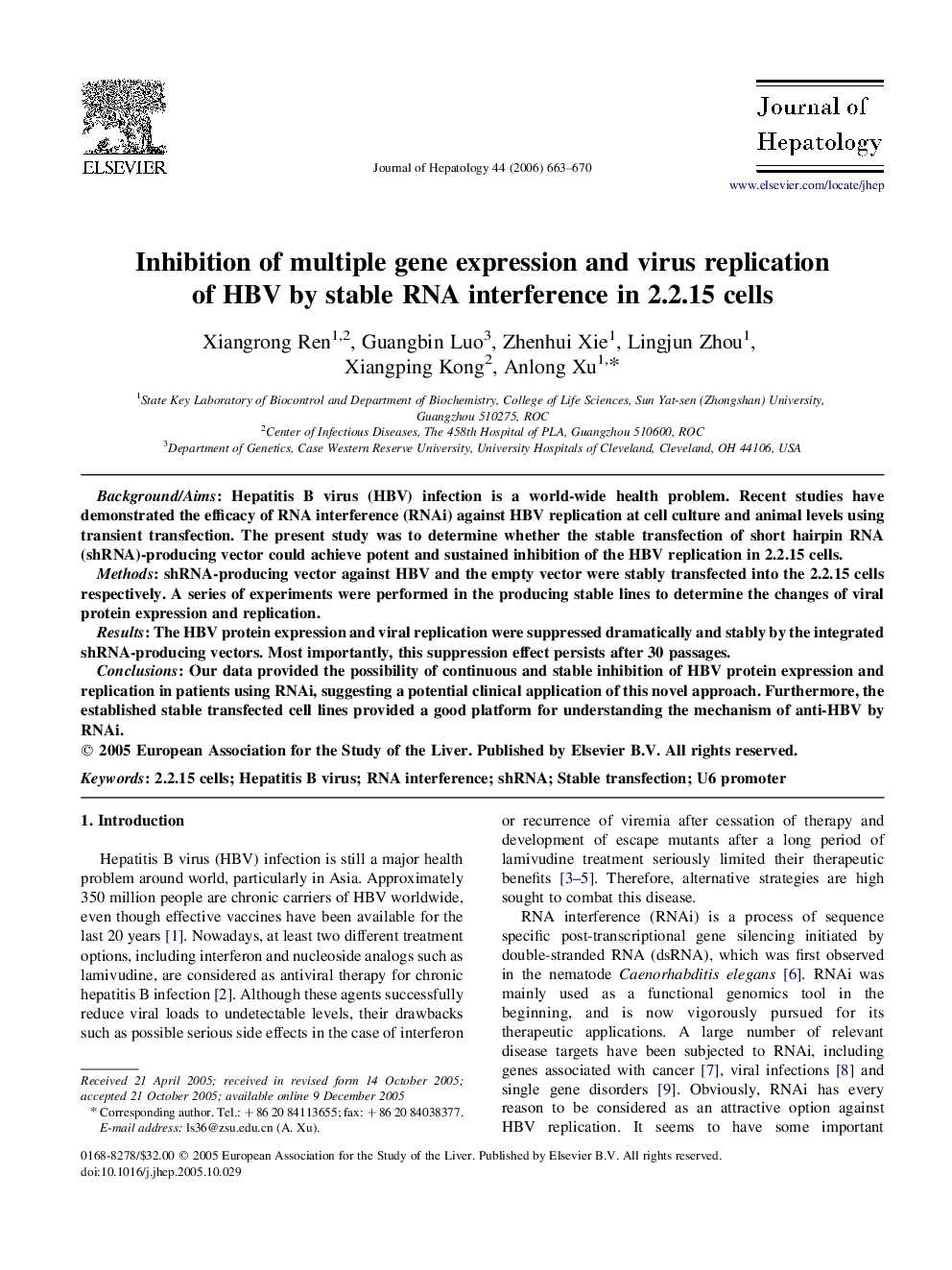| Article ID | Journal | Published Year | Pages | File Type |
|---|---|---|---|---|
| 3314869 | Journal of Hepatology | 2006 | 8 Pages |
Background/AimsHepatitis B virus (HBV) infection is a world-wide health problem. Recent studies have demonstrated the efficacy of RNA interference (RNAi) against HBV replication at cell culture and animal levels using transient transfection. The present study was to determine whether the stable transfection of short hairpin RNA (shRNA)-producing vector could achieve potent and sustained inhibition of the HBV replication in 2.2.15 cells.MethodsshRNA-producing vector against HBV and the empty vector were stably transfected into the 2.2.15 cells respectively. A series of experiments were performed in the producing stable lines to determine the changes of viral protein expression and replication.ResultsThe HBV protein expression and viral replication were suppressed dramatically and stably by the integrated shRNA-producing vectors. Most importantly, this suppression effect persists after 30 passages.ConclusionsOur data provided the possibility of continuous and stable inhibition of HBV protein expression and replication in patients using RNAi, suggesting a potential clinical application of this novel approach. Furthermore, the established stable transfected cell lines provided a good platform for understanding the mechanism of anti-HBV by RNAi.
